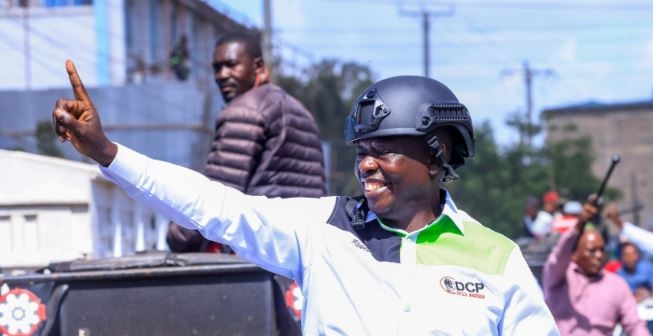The government has been asked to identify land owned by absentee landlords at the Coast and give the occupants title deeds.
The Coast Civil Society Network on Monday said absentee landlordism is common in the region and tycoons use this phenomenon to grab land.
Haki Yetu Organization, a member of the network, has solved three major cases involving absentee landlords in Mombasa, including Vikobani and Owino Uhuru in Jomvu and the latest one in Dzitengezere in Kadzandani ward, Nyali constituency.
“You find a tycoon identifying a parcel of land, does a search and finds it is either owned by a deceased person or has no owner and they register it under a fictitious name.
“Later, they send 'professional' squatters to the land under instructions to claim the land belongs to their long dead forefathers,” Haki Yetu’s John Paul Obonyo said.
Since they are moneyed, going through the court system is not a worry for them and they later tend to ‘win’ those cases because of corrupt judicial officers, Obonyo said.
In the Dzitengezere case, Haki Yetu, Kituo Cha Sheria and Coast Land Non-State Actors were the major players who helped solve the case.
It was concluded on Monday, with 139 families ecstatic after getting a mother title to 5.92 acres of land that the families had been living on for over 30 years.
The land was subject of a court case that started in 2017 and ended in 2019.
Its tenure is freehold and the title has no encumbrance, meaning there is no loan against the title.
The residents, through the Dzitengezere Self Help Group, had applied for adverse possession.
“When they went to court, the court gazetted it and gave a 45-day grace period for anyone claiming ownership of the land to appear so as to be served,” Obonyo said.
He said they will continue helping residents get title deeds for the areas they live in and address the squatter problem in Mombasa.
“At the Coast, people do not believe the land question can be solved. But this is proof that they can be solved so long as there is goodwill, both political and social,” Obonyo said.
Zedekiah Adika, a lawyer with Kituo Cha Sheria and chairman of the Coast Civil Society Network, said Dzitengezere residents have been on the land since the 1990s.
“In the Coast there have been historical problems on land. There are people who came, took advantage the poverty and illiteracy of the people to grab their lands and used them to get huge loans and then left the people there as squatters,” Adika said.
He said residents then become squatters in their own land because they do not have requisite documents and don’t even know how to go about getting those documents.
“Today, Dzitengezere residents have freed themselves from that bondage,” Adika said.
He said some 556 people will benefit from the title.
“A big population will have peace of mind knowing they have a title deed now,” Adika said.
Kituo Cha Sheria first took lead in the case before it was replaced by Coast Land Non-State Actors.
The civil society did some mediation after some challenges within the community appeared during the case period.
Adika called on the national and Mombasa county government to waive the Sh39 million that has accrued in land rates because the community has just acquired the parcel legally.
“There was no way they could pay anything as rates because the land was not theirs. Let this fee be waived so that these residents start afresh,” Adika said.
He called on the Lands registrar and government surveyors to help the community process their individual titles if they wish to subdivide the land.
“That will help this community live with dignity as all Kenyans,” he said.
The title has been registered under the names of Joseph Karisa Malingi and Zindzy Kaloki as trustees on behalf of the Dzitengezere Self Help Group.
Kaloki, who helped follow up the case all along, said she was among the first Dzitengezere Self Help Group committee members chosen to start the journey to look for the title in 2014.
She was elected as the committee’s first chairperson.
“I personally came here in 2000 and that year we established the demarcation of the land and found its acreage, which is 5.92,” she noted.
However, she asked self-help groups that might have land challenges to ensure the tenure of the committee that serves them is not short, saying one year is not enough to follow up on such matters.
Celestine Chando, the Dzitengezere Self-Help Group chairperson, said she got into the land in 2004 when a committee was still in the process of the looking for a title.
“We have had many challenges seeking for this title but now we are happy the end has been positive,” she said.
She asked the Mombasa county government to waive the Sh39 million in land rates that the land owes the county.
“The National Land Commission, when we come to your office, please help us,” Chando said.














